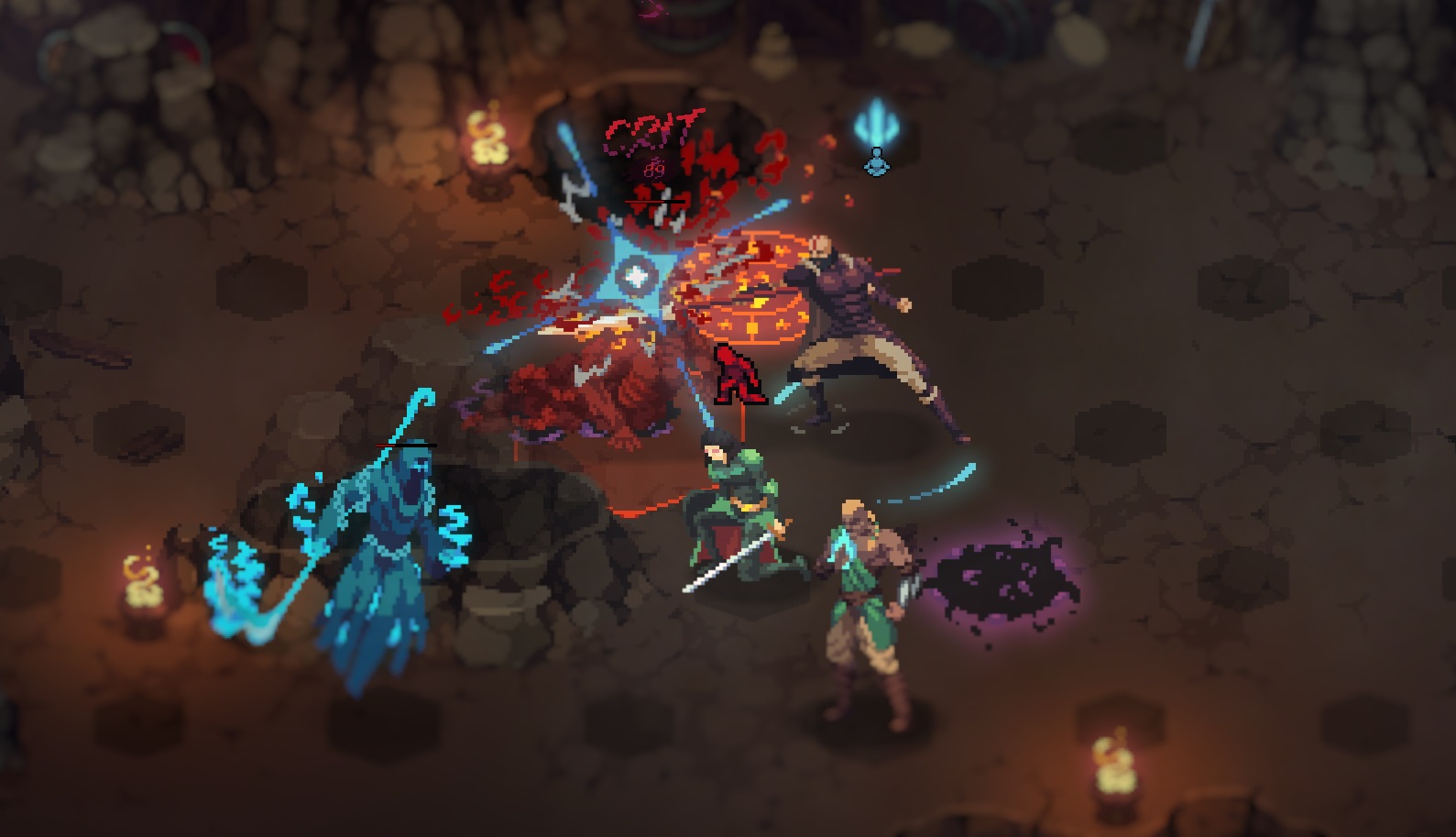
You can hardly move for mercenary companies these days. At the entrance to every monster den, and parked outside every bandit camp, are countless bands of blades for hire, all bickering over who gets to claim the bounty. Early access RPG The Iron Oath is the latest game tapping into this trend, and you won't be surprised to learn it drops you in a medieval fantasy world, with frequent bouts of tactical, turn-based combat.
Where it differs from Battle Brothers is in its slightly less gritty world, and its focus on a set narrative as you seek to avenge a devastating betrayal. There's a lengthy prologue—which you can skip, jumping right into the open world—that leaves the company in ruins and sets them off on their retribution mission, although you can ignore this main quest and go tramping off across the world whenever you like.
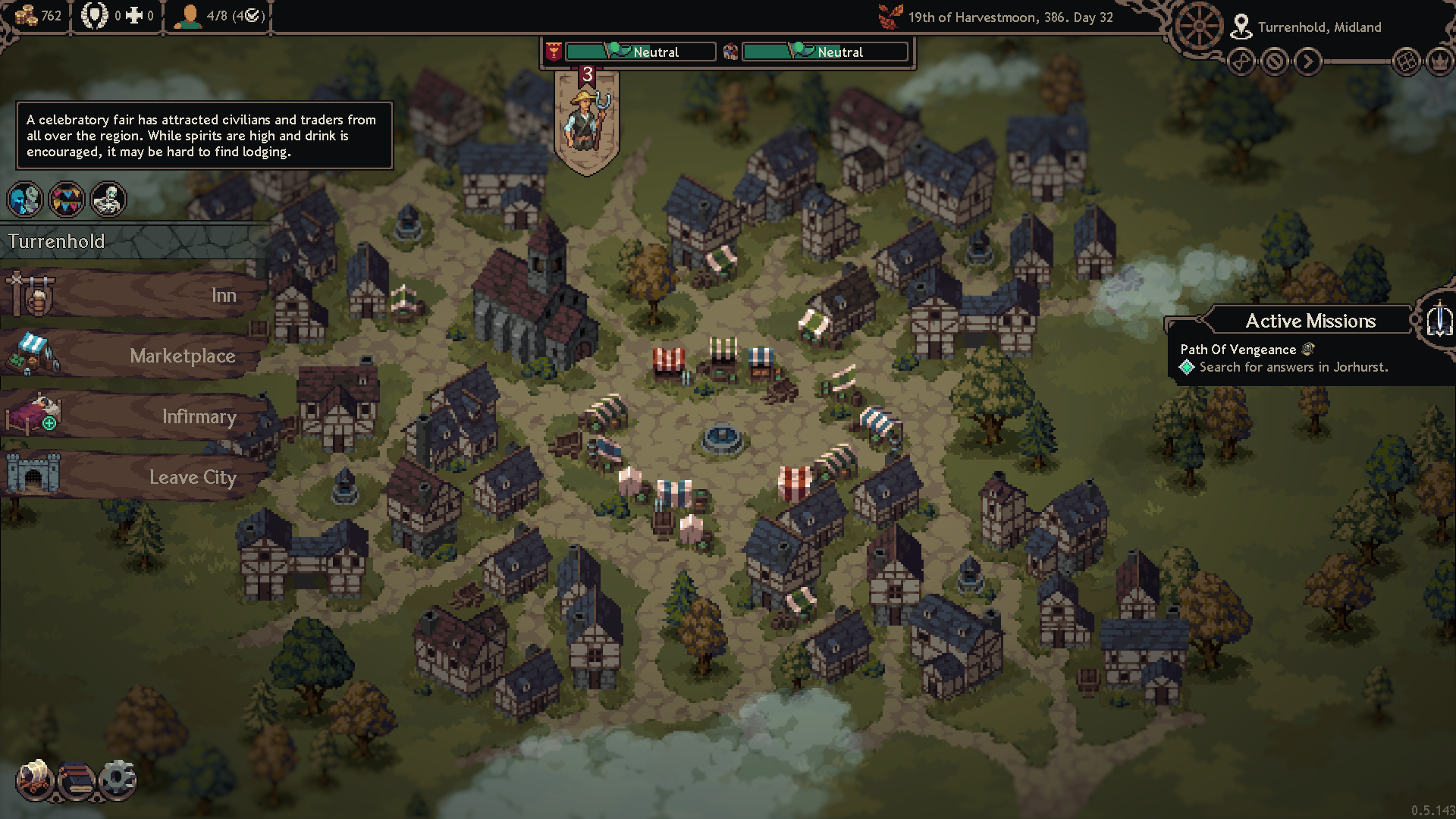
The story is concise and well told, hitting familiar genre beats in a setting that's more high fantasy than the other mercenary games. There's a creature named the Void Dragon that's going around devastating villages, and which is the progenitor of hellish monsters known as Voidspawn. Magic is commonplace: you'll cast pyromancy and storm spells, and wield miraculous powers as you fight Voidspawn, the undead, and your fellow humans.
Interestingly, the dialogue adapts as your mercenaries meet untimely ends.
Interestingly, the dialogue adapts as your mercenaries meet untimely ends. Playing on the medium difficulty—which offered a satisfying challenge, full of tense battles and frequent character deaths—I had buried all my original mercenaries by the time I finished the prologue missions. The resulting text narration made a point of commenting on the losses, while a later event invited me to perform a burial. I spent precious time on the funeral because the game was treating these expendable mercs as actual characters in the written story—and, consequently, so was I.
Perhaps inevitably, the flip-side of this narrative focus is that The Iron Oath is limited as a sandbox game, at least in this initial early access version. Where similar games procedurally generate their worlds, or offer a suite of starting options, here you're deposited in a fixed landscape with no way to tailor the world of Caelum to your liking.
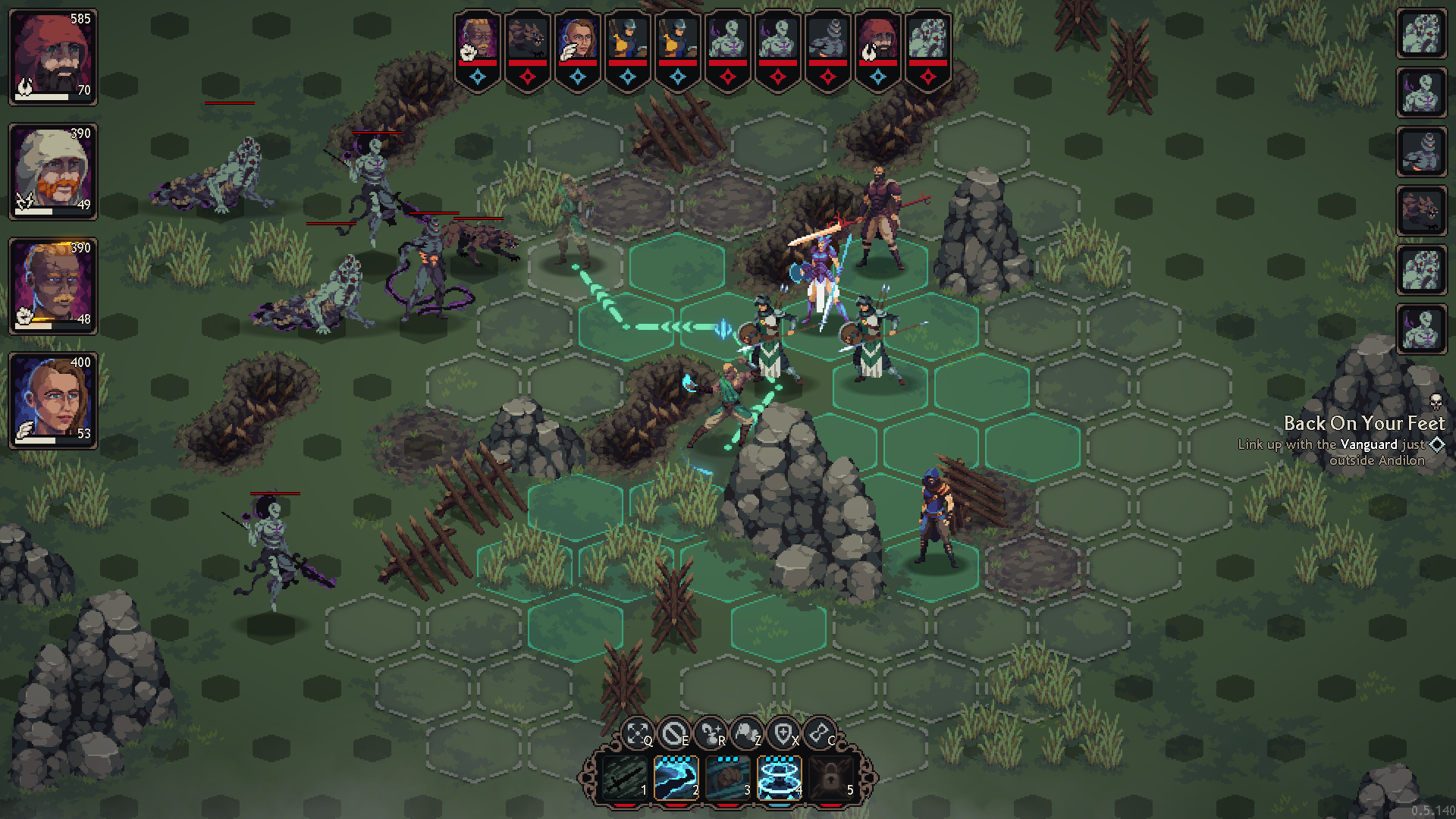
To be fair, there is plenty of stuff going on in the background. Little icons by each town tell you which factors are currently affecting them, including the presence of bandits or monsters, or environmental effects like dust storms. These might sound dramatic, but mainly they decide the types of jobs on offer. If there's undead in the region, there will be more jobs asking you to hunt them down, while bandits supposedly increase shop prices in nearby towns.
These factors change as time passes, but I couldn't detect any notable fluctuations to the economy in affected towns, while it hardly matters which type of monster you've been sent to kill as part of a job.
The biggest gaming news, reviews and hardware deals
Keep up to date with the most important stories and the best deals, as picked by the PC Gamer team.
Jobs, for the most part, are typical sidequest stuff: clear out these monsters or escort this caravan in exchange for cash and renown that increases your standing in that part of the world. A higher reputation leads to better shop prices and jobs, while a lower one may put a bounty on your head.
The Iron Price
When combat breaks out, either in a dungeon or out on the overworld, it's handled swiftly and gracefully, in the tried-and-tested turn-based tactics manner. You can take just four of your company into fights, on smallish hex maps with a smallish number of enemies, which really gets you into the heat of battle quickly.
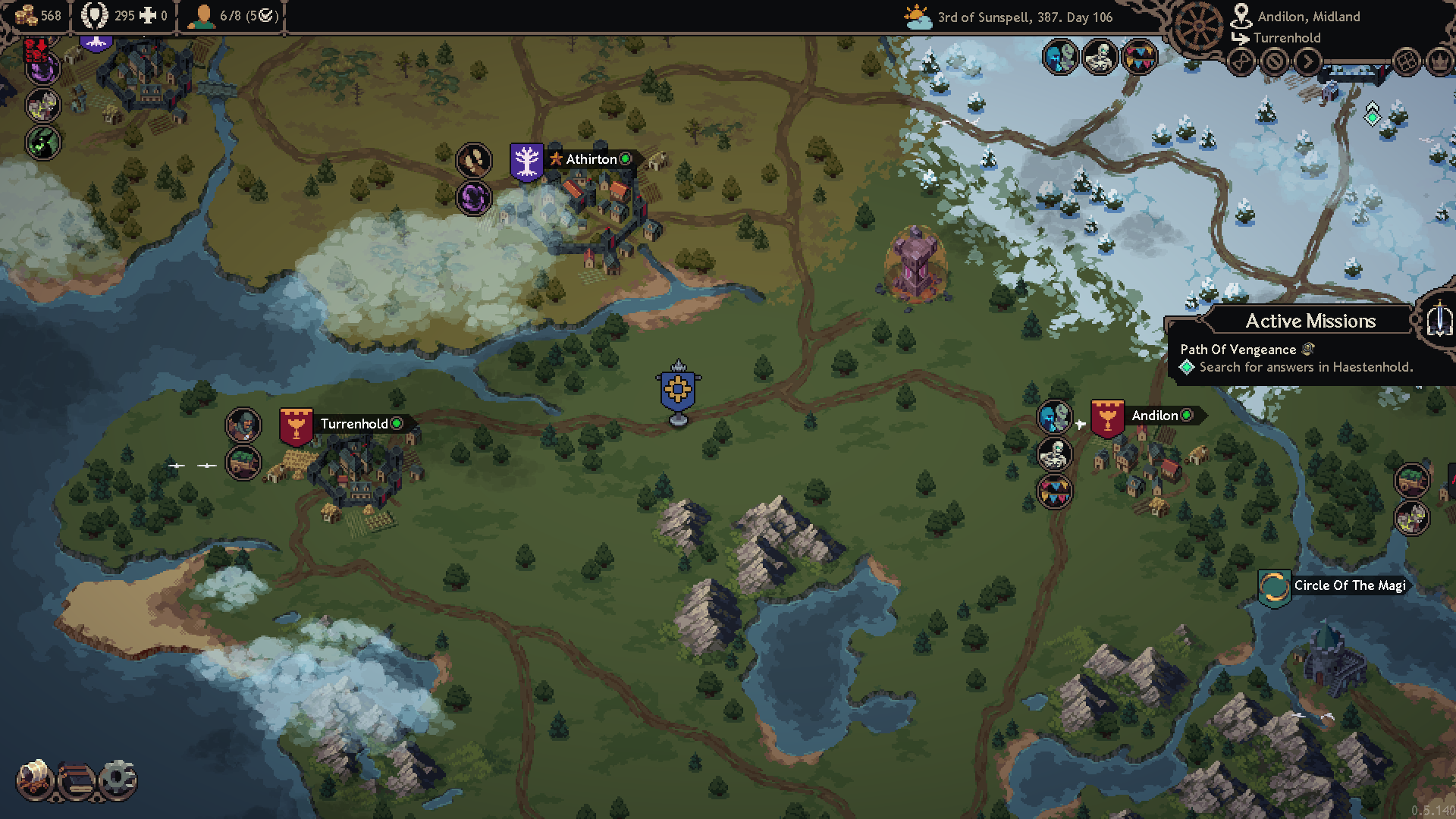
There's light and heavy cover, but that's only part of The Iron Oath's emphasis on terrain, as there are also spike pits and holes, and sigils that trigger magical effects when stepped on. Rarely do your abilities just cause damage to your opponent; you're laying a fire trap with your pyrolancer, then using your pugilist to push the enemy into it.
Rarely do your abilities just cause damage to your opponent; you're laying a fire trap with your pyrolancer, then using your pugilist to push the enemy into it.
Positioning is everything, which can make the fixed viewpoint frustrating sometimes. When the participants are bunched together in a mass of sprites and interface icons, it can be difficult to read the battlefield. On the whole, though, battles are enjoyable and tactically rich thanks to the thoughtful use of terrain and abilities.
It's not just one-off battles, however. Your mercs are more than happy to descend into monster-filled dungeons packed with obstacles and branching pathways. The closest comparison is Darkest Dungeon, as you hop from node to node while managing dwindling resources, including health potions, bandages, and abilities that (only potentially) recharge when you make camp. At the end, your mercs will be bruised and probably injured, requiring stays in an infirmary. And what do you get from all that effort? Well, not very much.
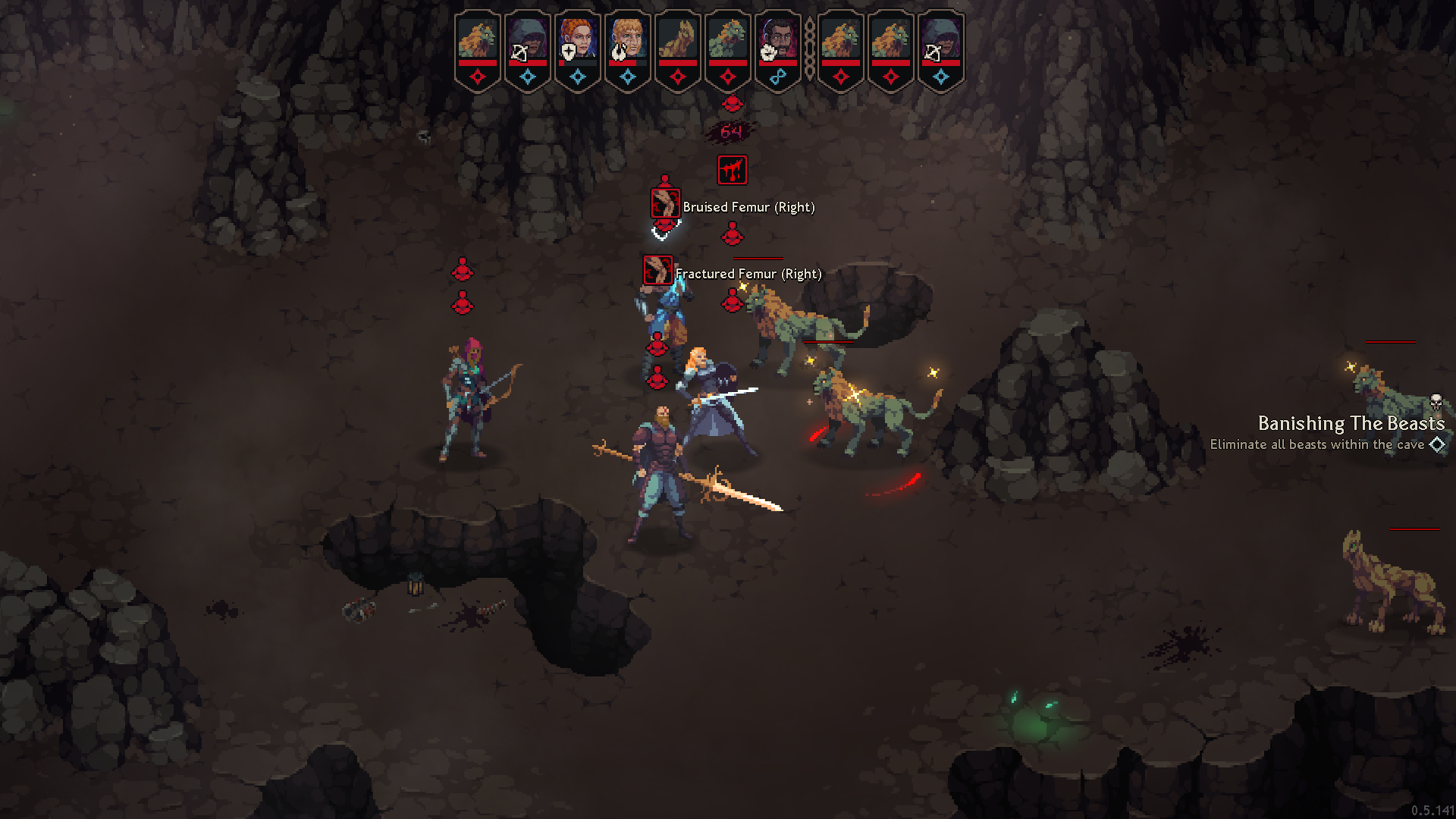
There are jobs that take place on the overworld, and jobs that have you spelunking into dungeons, and your rewards for the latter—a few more experience and renown points—are hardly worth it. Despite this, I still found delving into dungeons to be a tense, satisfying experience—the first couple of times. After that, I tended to focus on the shorter, less stressful jobs. Jobs that wouldn't leave my mercs in the infirmary—or the grave.
The biggest issue at the moment—and it's a common one in early access games—is content. Oh, there are stacks of towns to visit, and piles of dungeons to clear out, but not enough varied art assets to make any feel unique. I can't say I'm keen to visit more aesthetically identical dungeons, but I would definitely return to that map, which is beautiful and a joy to traverse.
I'm interested to see how The Iron Oath will develop over the coming months, as compared to many early access games it has launched in a remarkably solid state. The story is reactive and the combat satisfying, even with the small number of classes currently available. The roadmap suggests that more are coming, along with more quests, environments and enemies—more of what it's currently lacking. But this is already an engrossing and hugely promising tactical RPG.
Tom loves exploring in games, whether it’s going the wrong way in a platformer or burgling an apartment in Deus Ex. His favourite game worlds—Stalker, Dark Souls, Thief—have an atmosphere you could wallop with a blackjack. He enjoys horror, adventure, puzzle games and RPGs, and played the Japanese version of Final Fantasy VIII with a translated script he printed off from the internet. Tom has been writing about free games for PC Gamer since 2012. If he were packing for a desert island, he’d take his giant Columbo boxset and a laptop stuffed with PuzzleScript games.


